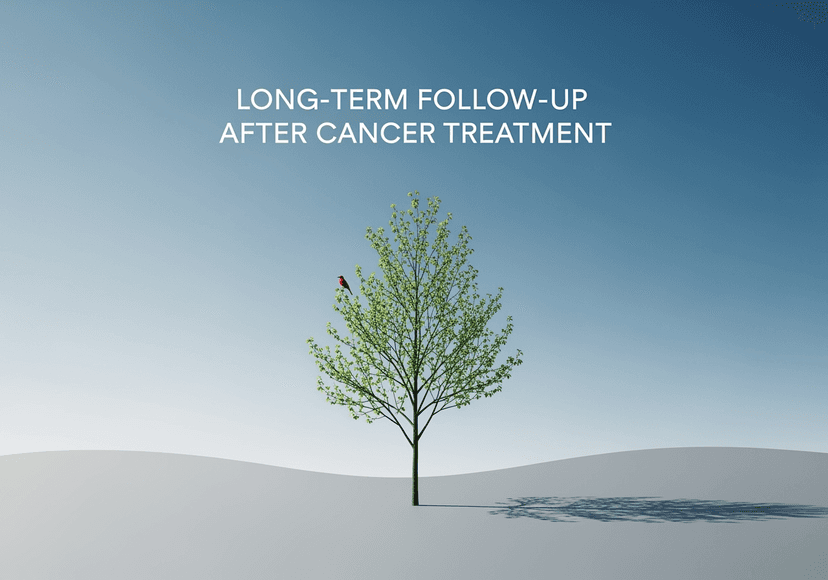
Understanding Mouth Cancer: A Healthtrip Guide
26 Nov, 2024
 Healthtrip
HealthtripAs we go about our daily lives, it's easy to take our health for granted. We often neglect to prioritize self-care, and sometimes, it takes a wake-up call to realize the importance of proactive healthcare. One such critical aspect of our health is our mouth, which is a gateway to our overall well-being. Mouth cancer, in particular, is a growing concern that can have devastating consequences if left undetected or untreated. At Healthtrip, we believe that awareness and education are key to combating this disease, which is why we're dedicating this blog post to understanding mouth cancer and how you can take control of your oral health.
What is Mouth Cancer?
Mouth cancer, also known as oral cancer, is a type of cancer that affects the lips, tongue, cheeks, gums, and the floor of the mouth. It occurs when abnormal cells in the mouth multiply and grow uncontrollably, forming a tumor. According to the World Health Organization (WHO), mouth cancer accounts for 2% of all cancer cases globally, with an estimated 300,000 new cases diagnosed every year. The most common types of mouth cancer are squamous cell carcinoma, which affects the lining of the mouth, and adenocarcinoma, which affects the glands that produce saliva.
Most popular procedures in India
Risk Factors and Causes
While mouth cancer can affect anyone, certain risk factors can increase your likelihood of developing the disease. These include smoking, excessive alcohol consumption, a diet lacking in fruits and vegetables, and exposure to human papillomavirus (HPV). Additionally, people with a family history of mouth cancer, those who have had previous radiation therapy, and individuals with weakened immune systems are more susceptible to developing the disease. It's essential to be aware of these risk factors and take proactive steps to mitigate them.
Wellness Treatments
Give yourself the time to relax
Lowest Prices Guaranteed!

Lowest Prices Guaranteed!
Early Detection and Symptoms
The key to effective mouth cancer treatment is early detection. If you're aware of the symptoms, you can seek medical attention promptly, increasing your chances of successful treatment. Some common symptoms of mouth cancer include ulcers or sores that don't heal, unusual bleeding or numbness in the mouth, difficulty swallowing, and persistent pain or discomfort in the mouth or ear. If you experience any of these symptoms, don't hesitate to consult a healthcare professional. At Healthtrip, our team of medical experts can guide you through the diagnosis and treatment process, ensuring you receive the best possible care.
The Importance of Regular Check-Ups
Regular dental check-ups are crucial for detecting mouth cancer in its early stages. During these check-ups, your dentist can perform a thorough examination of your mouth, looking for any signs of abnormal cell growth. If you're at high risk of developing mouth cancer, your dentist may recommend more frequent check-ups. Don't underestimate the importance of these appointments – they can be lifesaving. By prioritizing your oral health, you're taking proactive steps towards detecting mouth cancer early, when treatment is most effective.
Treatment Options and Healthtrip's Role
If you're diagnosed with mouth cancer, your treatment options will depend on the stage and location of the cancer, as well as your overall health. Common treatments include surgery, radiation therapy, and chemotherapy. At Healthtrip, we understand the emotional and physical toll that mouth cancer can take on individuals and their loved ones. That's why we offer personalized treatment plans, tailored to your unique needs and preferences. Our team of medical experts will guide you through every step of the treatment process, ensuring you receive the best possible care.
Why Choose Healthtrip for Mouth Cancer Treatment?
At Healthtrip, we're committed to providing comprehensive, patient-centered care. Our team of medical experts has extensive experience in treating mouth cancer, and we're dedicated to helping you overcome this disease. We understand that every individual is unique, which is why we offer personalized treatment plans that cater to your specific needs and preferences. By choosing Healthtrip, you're not just choosing a treatment provider – you're choosing a partner in your healthcare journey.
Conclusion
Mouth cancer is a serious disease that requires awareness, education, and proactive action. By understanding the risk factors, symptoms, and treatment options, you can take control of your oral health and reduce your risk of developing mouth cancer. At Healthtrip, we're committed to helping you navigate the complexities of mouth cancer, providing personalized care and support every step of the way. Don't wait until it's too late – prioritize your oral health today, and take the first step towards a healthier, happier you.
Most popular wellness packages
Related Blogs

Long-Term Follow-Up After Cancer Treatment
Detailed insights into cancer treatment – doctors, hospitals, technology, recovery,

Healthtrip’s Transparency in Cancer Treatment Pricing and Packages
Detailed insights into cancer treatment – doctors, hospitals, technology, recovery,

Frequently Asked Questions About Cancer Treatment
Detailed insights into cancer treatment – doctors, hospitals, technology, recovery,

Advanced Robotic Technology Used in Cancer Treatment
Detailed insights into cancer treatment – doctors, hospitals, technology, recovery,

How Healthtrip Supports Foreign Patients for Cancer Treatment in India
Detailed insights into cancer treatment – doctors, hospitals, technology, recovery,

Top Medical Packages for Cancer Treatment Offered by Healthtrip
Detailed insights into cancer treatment – doctors, hospitals, technology, recovery,










